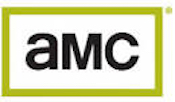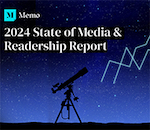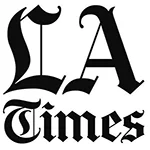 |
| Dawn Davis |
Condé Nast has named Dawn Davis editor in chief of Bon Appetit. Davis was previously a vice president at Simon & Schuster, as well as the founder and publisher of its 37 INK imprint, which focuses on a diverse list that includes Black authors. She replaces Adam Rapoport, who had led the magazine since 2010. Rapoport stepped down from the position in June, after a 2013 Instagram post of him in “brown face” at a Halloween party was unearthed. The publication has also faced charges that it underpaid people of color who worked in its video department, and showed a lack of diversity in its food pages. “Dawn’s work stands out for defining and leading important cultural conversations,” Conde Nast artistic director Anna Wintour said in a statement. “She is a trusted voice and supporter of a diverse and inclusive community of writers, and she has shone a light on people and stories that need to be told.”
 |
The Federal Communications Commission has denied AMC’s request for a standstill order that would preserve the network’s current program carriage agreement with AT&T, according to The Hollywood Reporter. The agreement was set to expire Aug. 31. As a result, the network could go dark on such AT&T platforms as DirecTV and AT&T TV Now, which currently account for a quarter of AMC households. AMC has charged AT&T is using its bargaining power as a vertically integrated multichannel video programming distributor to put unaffiliated, independent programming networks at a disadvantage by demanding anticompetitive program carriage terms. While the merits of AMC’s complaint have not been ruled on, the network wanted a freeze to preserve the existing relationship. However, the FCC said it does not think “irreparable harm” would be done to AMC by what it calls a “temporary service disruption.”
 |
| Will Easton |
Facebook says that it will “reluctantly stop allowing publishers and people in Australia from sharing local and international news on Facebook and Instagram” if a new regulation being drafted by the Australian Competition and Consumer Commission takes effect. The regulation, which has yet to be passed by Australia’s Parliament, would require digital platforms to negotiate with media companies over payment for content that appears on the platform. The proposed rules are supported by Australian media companies including News Corp and Nine Entertainment Co., the owner of such papers as the Sydney Morning Herald. An Aug. 31 statement from Facebook Australia & New Zealand managing director Will Easton says that the company is “left with a choice of either removing news entirely or accepting a system that lets publishers charge us for as much content as they want at a price with no clear limits.”


 Trump Media & Technology Group today reported a $58.2M net loss on $4.1M in 2023 revenues, a disclosure that drove its stock price down 22.6 percent to $47.96.
Trump Media & Technology Group today reported a $58.2M net loss on $4.1M in 2023 revenues, a disclosure that drove its stock price down 22.6 percent to $47.96. Barry Pollack, an attorney at Wall Street’s Harris St. Laurent & Wechsler, has registered Julian Assange as a client with the Justice Dept. “out of an abundance of caution.”
Barry Pollack, an attorney at Wall Street’s Harris St. Laurent & Wechsler, has registered Julian Assange as a client with the Justice Dept. “out of an abundance of caution.” Paramount Global to slash 800 jobs in what chief executive Bob Bakish calls part of an effort to “return the company to earnings growth"... Rolling Stone editor-in-chief Noah Shachtman is exiting at the end of the month due to disagreements with chief executive Gus Wenner over the direction the magazine is taking... The New York Times broke the $1 billion barrier in annual revenue from digital subscriptions in 2023... Press Forward is investing more than $500 million to strengthen local newsrooms.
Paramount Global to slash 800 jobs in what chief executive Bob Bakish calls part of an effort to “return the company to earnings growth"... Rolling Stone editor-in-chief Noah Shachtman is exiting at the end of the month due to disagreements with chief executive Gus Wenner over the direction the magazine is taking... The New York Times broke the $1 billion barrier in annual revenue from digital subscriptions in 2023... Press Forward is investing more than $500 million to strengthen local newsrooms. The majority of news articles are read within the first three days of publication, according to a recent report.
The majority of news articles are read within the first three days of publication, according to a recent report. The Los Angeles Times gives pink slips to 115 people or 20 percent of its newsroom staff... TIME is also laying off about 30 employees, which is approximately 15 percent of its editorial staff... The Baltimore Banner, which was launched by Stewart Bainum in 2022 after he failed to buy the Baltimore Sun, added 500 subscribers per day in the three days following Sinclair Broadcast Group's deal to purchase the Sun.
The Los Angeles Times gives pink slips to 115 people or 20 percent of its newsroom staff... TIME is also laying off about 30 employees, which is approximately 15 percent of its editorial staff... The Baltimore Banner, which was launched by Stewart Bainum in 2022 after he failed to buy the Baltimore Sun, added 500 subscribers per day in the three days following Sinclair Broadcast Group's deal to purchase the Sun.


 Have a comment? Send it to
Have a comment? Send it to 
No comments have been submitted for this story yet.